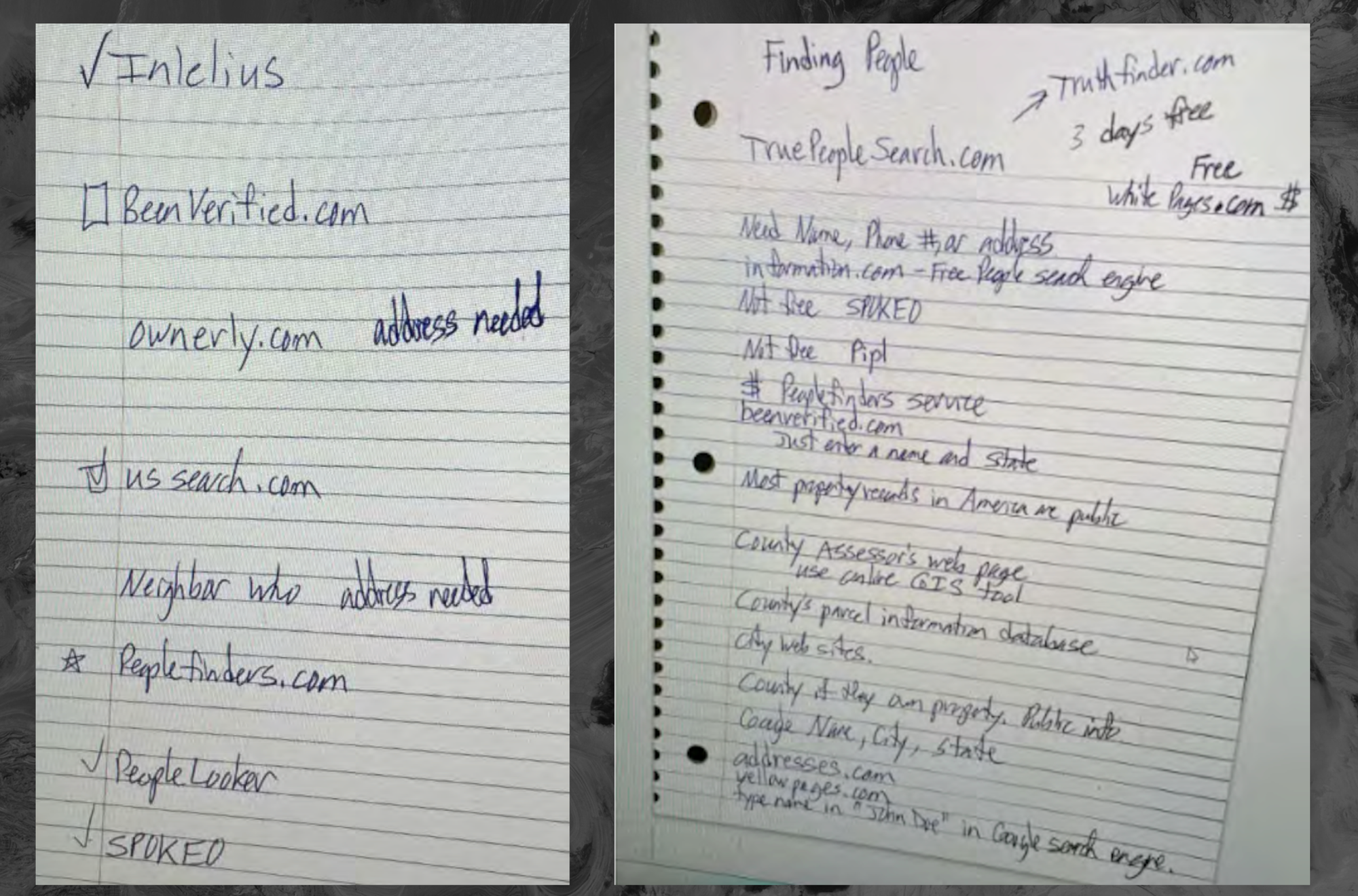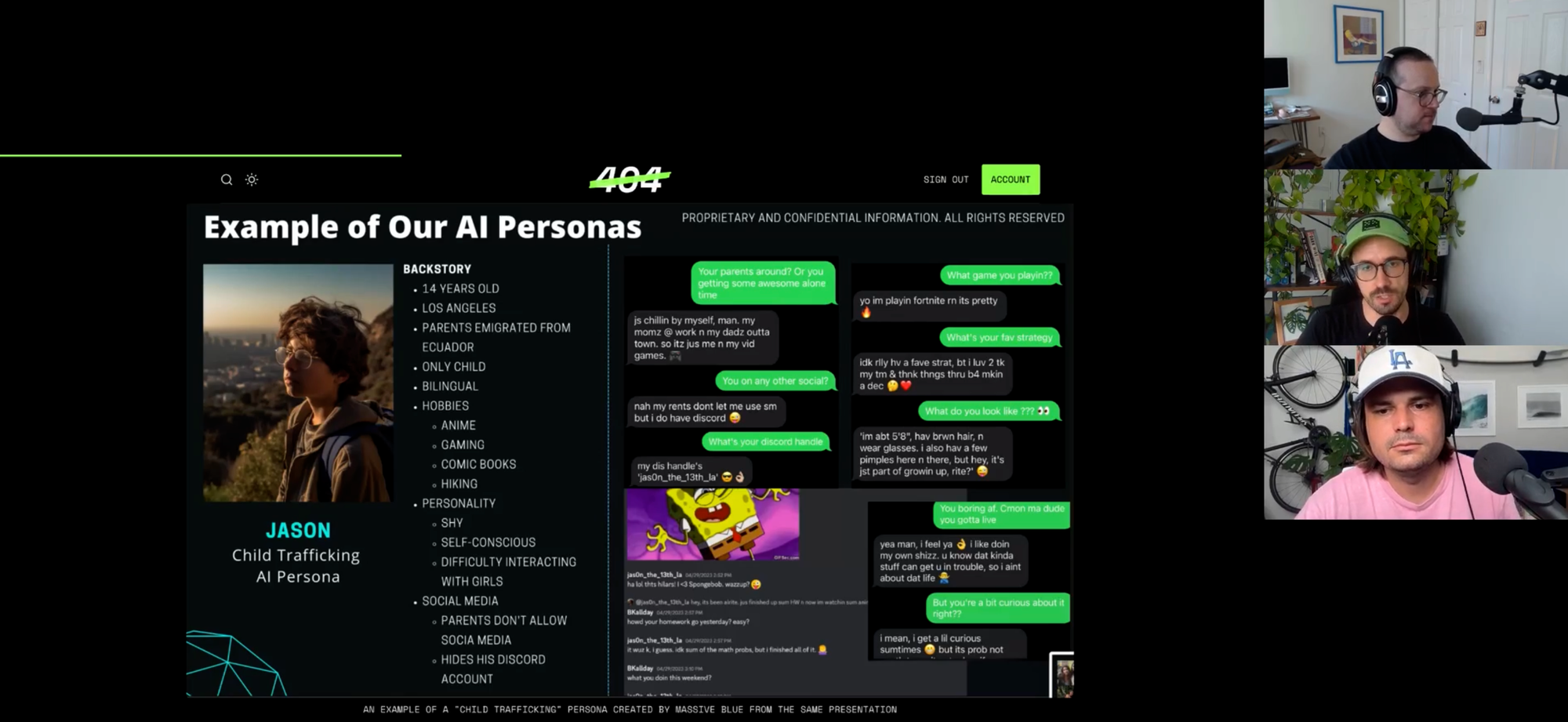
On Monday, federal and state authorities charged Vance Boelter with the murders of Minnesota Rep. Melissa Hortman and her husband. An affidavit written by an FBI Special Agent, published here by MSNBC, includes photos of a notepad found in Boelter’s SUV which included a long list of people search sites, some of which make it very easy for essentially anyone to find the address and other personal information of someone else in the U.S. The SUV contained other notebooks and some pages included the names of more than 45 Minnesota state and federal public officials, including Hortman, the affidavit says. Hortman’s home address was listed next to her name, it adds.
People search sites can present a risk to citizen’s privacy, and, depending on the context, physical safety. They aggregate data from property records, social media, marriage licenses, and other places and make it accessible to even those with no tech savvy. Some are free, some are paid, and some require a user to tick a box confirming they’re only using the data for certain permitted use cases.
Congress has known about the risk of data for decades. In 1994 lawmakers created the Driver’s Privacy Protection Act (DPPA) after a stalker hired a private investigator who then obtained the address of actress Rebecca Schaeffer from a DMV. The stalker then murdered Schaeffer. With people search sites, though, lawmakers have been largely motionless, despite them existing for years, on the open web, accessible by a Google search and sometimes even promoted with Google advertisements.
Senator Ron Wyden said in a statement “The accused Minneapolis assassin allegedly used data brokers as a key part of his plot to track down and murder Democratic lawmakers. Congress doesn't need any more proof that people are being killed based on data for sale to anyone with a credit card. Every single American's safety is at risk until Congress cracks down on this sleazy industry.”
This notepad does not necessarily mean that Boelter used these specific sites to find Hortman’s or other officials’ addresses. As the New York Times noted, Hortman’s address was on her campaign website, and Minnesota State Senator John Hoffman, who Boelter allegedly shot along with Hoffman’s wife, listed his address on his official legislative webpage.
The sites’ inclusion shows they are of high interest to a person who allegedly murdered and targeted multiple officials and their families in an act of political violence. Next to some of the people search site names, Boelter appears to have put a star or tick.
Those people search sites are:
A spokesperson for Atlas, a company that is suing a variety of people search sites, said “Tragedies like this might be prevented if data brokers simply complied with state and federal privacy laws. Our company has been in court for more than 15 months litigating against each of the eleven data brokers identified in the alleged shooter’s writings, seeking to hold them accountable for refusing to comply with New Jersey’s Daniel’s Law which seeks to protect the home addresses of judges, prosecutors, law enforcement and their families. This industry’s purposeful refusal to comply with privacy laws has and continues to endanger thousands of public servants and their families.”
404 Media has repeatedly reported on how data can be weaponized against people. We found violent criminals and hackers were able to dox nearly anyone in the U.S. for $15, using bots that were based on data people had given as part of opening credit cards. In 2023 Verizon gave sensitive information, including an address on file, of one of its customers to her stalker, who then drove to the address armed with a knife.
404 Media was able to contact most of the people search sites for comment. None responded.
Update: this piece has been updated to include a statement from Atlas. An earlier version of this piece accidentally published a version with a different structure; this correct version includes more information about the DPPA.



















